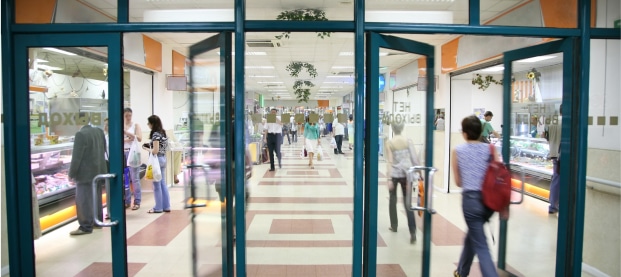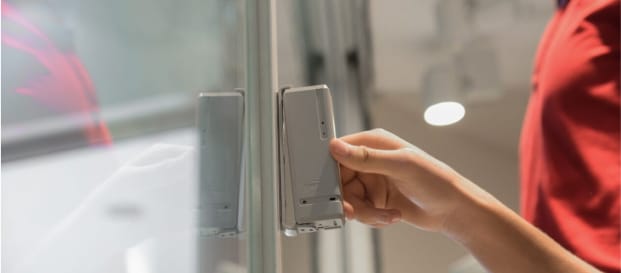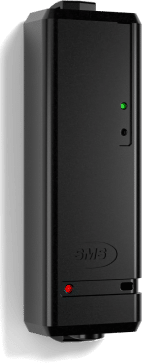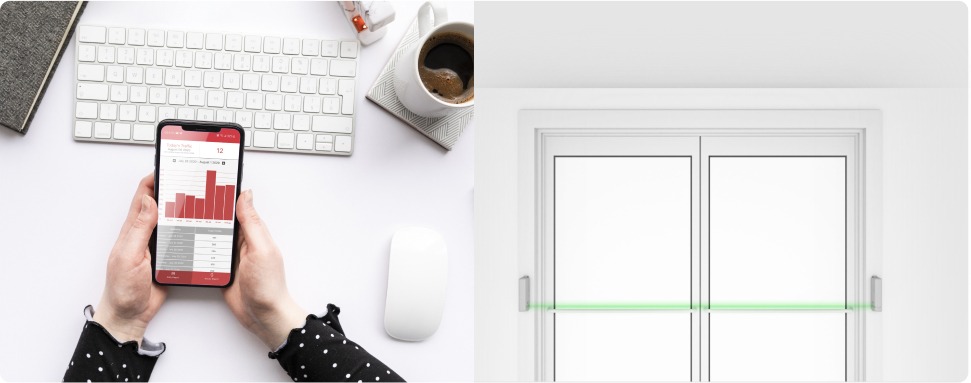What is people counting?

Starting with the basics: people counting is the widespread term for capturing foot traffic data in a specific location and within a specified time frame. Depending on country and industry, people counting can also be designated as visitor counting, traffic counting, store traffic counting, customer counting, footfall counting, or patron counting.
Retail industry stakeholders rely on store traffic counting to assess and improve performance. Private businesses and public institutions from several sectors also use people-counting data as a critical decision-making metric.
But why count people in the first place?
Accurate foot traffic data is a crucial metric that provides a wide range of strategic and operational insights to enhance overall service levels, revenue, profitability, and efficiency.
What are people counters?

Ranging in size, shape and technology, people counters are also called people counting devices, sensors or cameras. Some companies and industry professionals will also use visitor or foot traffic — as in visitor counter or foot traffic counters. Regardless of designation, these electronic devices make up the hardware part of what we call a people counting system, aka a people counting solution.
People counter devices capture foot traffic numbers for a defined location, and they do so automatically. Some lower-tech people counter sensors display visitor count directly on the device. More sophisticated people counters connect to the cloud, providing their end users with detailed reports and linking their visitor numbers to other valuable data, like staffing and point-of-sale sales data. Just as with other technological solutions, the capabilities and features vary from one people counter type to another.
But why count people in the first place? Accurate foot traffic data is a crucial metric that provides a wide range of strategic and operational insights to enhance overall service levels, revenue, profitability, and efficiency.
It’s the actionable nature of foot traffic numbers that makes people counters so relevant.
Why are people counters important?
Put simply: if the products you sell or the services you offer are closely tied to having people entering a defined location, then people counters can be a powerful tool in your arsenal.
What’s behind the growing interest in people counting technology?
Top reasons to use people counters
Grow sales performance by
- understanding and improving your conversion rate
- assessing your customer experience
- making the correct staffing decisions
Optimize your marketing by
- measuring the impact of tactics on foot traffic
Improve customer experience by
- staffing according to your traffic trends
- managing traffic and providing free-flow circulation
Demonstrate impact by
- showing proof of visitor count for financing and grant requests (e.g., libraries and museums)
Improve space management by
- identifying high-demand and unused areas
- optimizing facility maintenance and reducing energy consumption
Enhanced safety by
- controlling occupancy in real time, at all times
How do people counters work?
As mentioned from the onset, people counter sensors make up the hardware part of a people counting system.
They are often placed at a location’s entry points or in passageways — a store entrance, for example. Some people counter sensors rely on infrared technology, others on different types of specialized cameras. Regardless of technology, reliable people counter sensors systematically capture footfall numbers, without skipping a beat, as people enter and leave a location or walk in one direction or another.
Lower-grade people counters display foot traffic numbers on the device itself. Evidently, using this type of people counter provides significantly more accurate results than counting people yourself. However, their cheaper upfront cost compared to more premium devices comes with a price: you are the software.
Such people counters require end users to regularly jot down numbers, reset the device, manually input data into a spreadsheet, and program formulas to extract insights. Often, these foot traffic sensors become a source of frustration. End users eventually drop the idea of people counting altogether or choose a higher-performing people counting solution. And therein lies the edge of more advanced people counters. Indeed, higher-grade people counters perform more accurately and consistently but also handle all data management tasks.
By recording data to the cloud, higher-tech people counters (hardware) can connect directly with an analytics platform (ideally a web-based people counting software). As a result, you get access to visitor traffic numbers at any time, from any place, thanks to fully automated data management, from initial data capture to data processing.
What are the benefits of people counting software?
Beyond freeing up time managing data accurately, combining a people counter sensor (hardware) and people counter software fully delivers on the promise of people counting practices — especially in today’s fast-paced environment.
By automatically cross-analyzing foot traffic with other crucial metrics like sales, time of day, staffing, weather and more, people counting software provides hassle-free business intelligence insights — regardless of your company or institution size.
Moreover, robust people counting software provides in-depth analytics and dashboard views that include crucial metrics to deliver actionable insights relating to your specific operations — whether you operate a single store, an entire chain, or work in one of the industries mentioned earlier, where foot traffic can serve as a key performance indicator.

Fully integrated people counting solutions give you access to visitor traffic numbers at any time from any place thanks to fully automated data management, from initial data capture to data processing.
How to choose the right people counter?

Whether using a beam-, camera- or infrared-based people counter, your data accuracy will be significantly higher than having someone count people themselves. Cost-wise, automated people counters will also prove cheaper in the medium- to long-term; service, not repetitive tasks, is where humans shine brightest!
Once reserved for large-scale operations with equally large operational budgets, today’s people-counting technology is more accessible to a broader range of business types and sizes. That said, not all people counters are created equal.
Just as with many products and services it’s best to approach your people counter selection from a holistic point of view.
Although generally more affordable, some automated people counters perform better, regardless of conditions, while other people counter devices are designed to handle specific foot traffic situations (e.g., low-traffic single-door entryways vs. large passageways with high foot traffic).
Just as with many products and services, it’s best to approach your people counter selection from a holistic point of view. Is the people counter a standalone device, or does it integrate with software? Is the software related to the people counter provider ecosystem, and can you scale your foot traffic capture by adding more people counters in the future? And what about installation requirements? For instance, some people counters are entirely wireless, while others require a power and cloud connectivity cable.
Although several people counter options are available, there’s no need to suffer from selection anxiety. Choosing the right people counter solution for your business or institution can be hassle-free. Upon narrowing down your selection, request a demo for any people counter you’re considering. Demo calls should be free, just as you should feel free to ask all the questions you need to make the right choice. That initial customer experience is often a strong indicator of the customer experience and service levels you can expect.
For more insights on selecting the right people counter, check out this article about the 10 questions to ask when choosing a people counting system in 2023.










